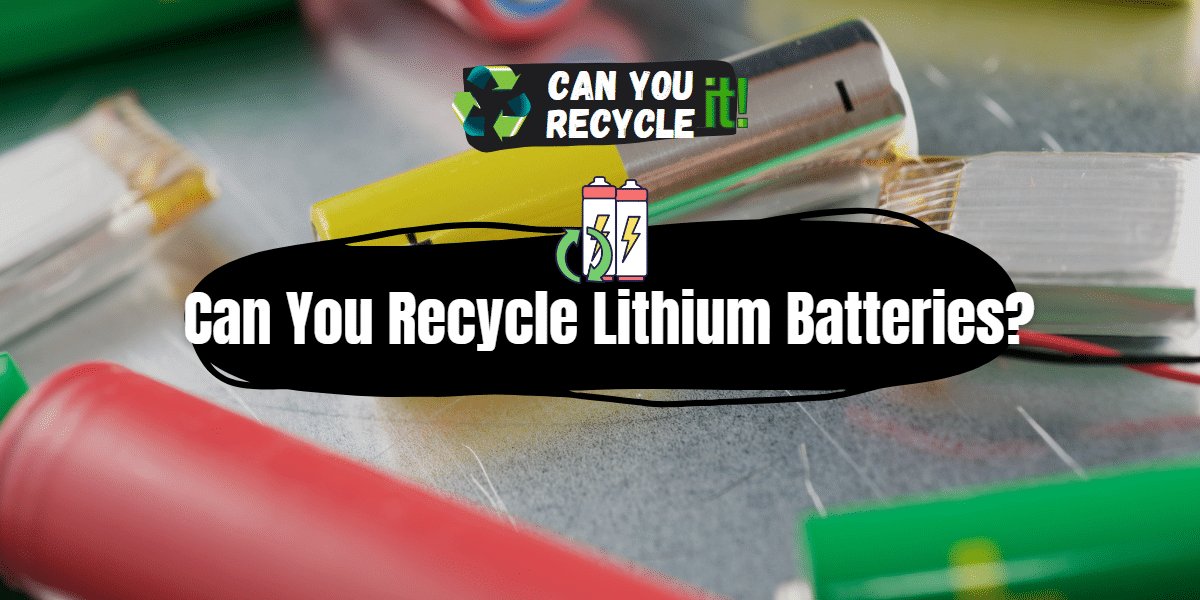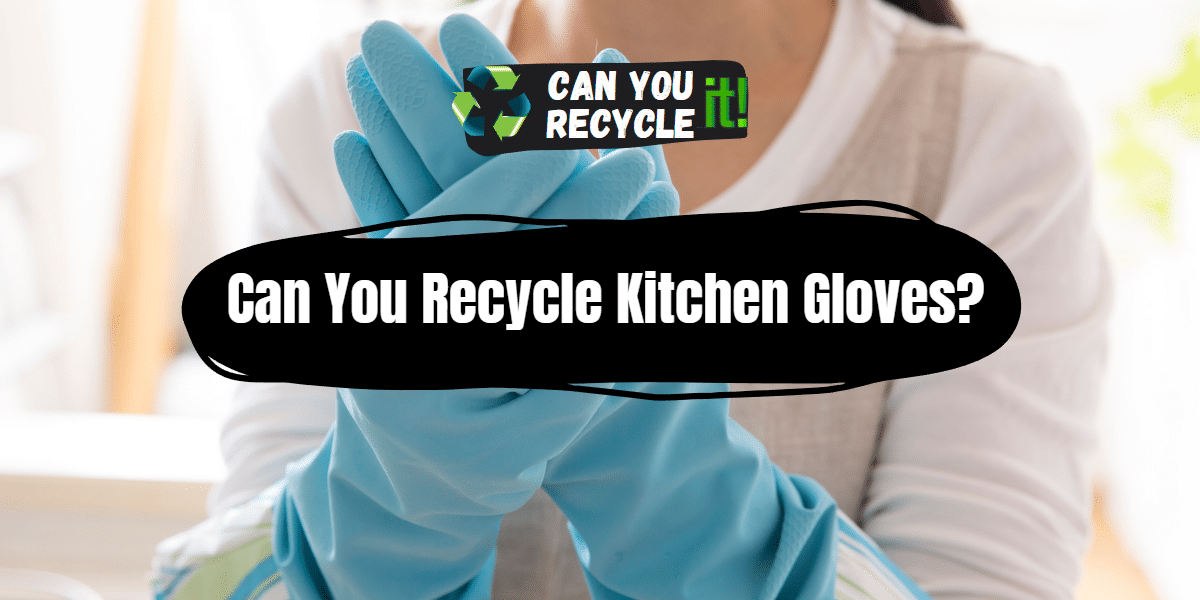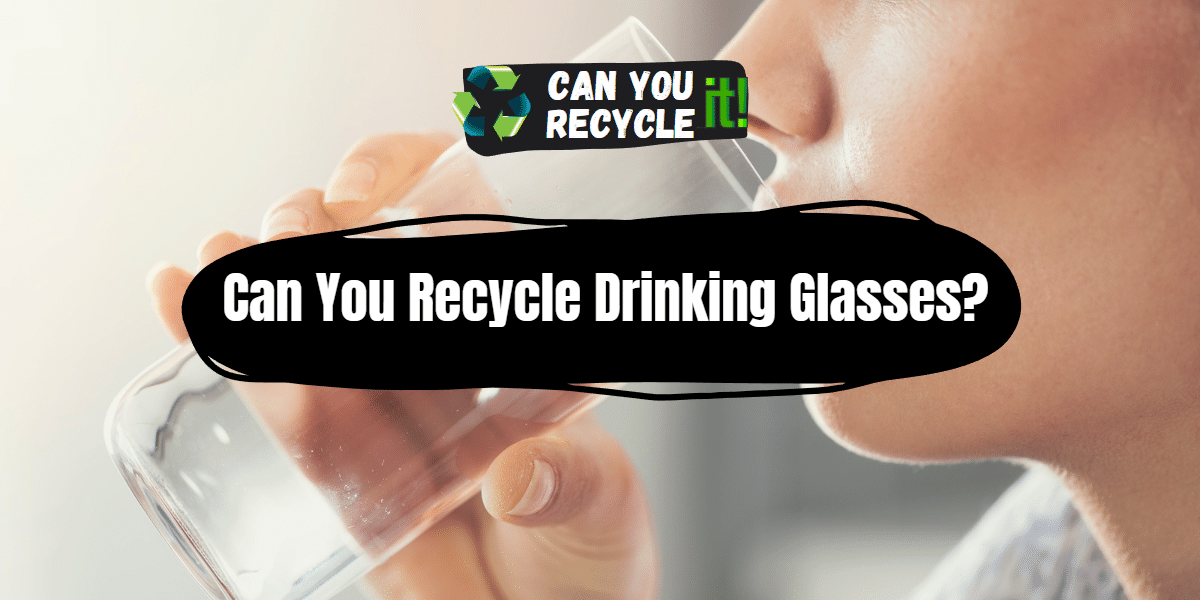Yes, we can recycle lithium batteries. and should be disposed of through proper recycling channels.
Recycling not only prevents these batteries from ending up in landfills but also helps recover valuable resources and reduces the environmental impact associated with their production.
Lithium batteries have become increasingly popular due to their high energy density and longer lifespan compared to traditional batteries. However, as their usage continues to rise, concerns about their environmental impact and proper disposal have also emerged. In this article, we will explore the question, “Can You Recycle Lithium Batteries?” and delve into the dos and don’ts, provide a step-by-step guide to recycling, address frequently asked questions, and offer final thoughts on the subject.
Table of Contents
Do’s and Don’ts
When it comes to No. 7 plastic, it’s important to follow certain guidelines to ensure proper recycling practices. Here are some dos and don’ts to keep in mind:
Dos
- Research recycling options: Look for recycling centers or programs in your area that accept lithium batteries. Local government websites, electronic stores, and recycling directories can provide valuable information.
- Separate from regular waste: Never dispose of lithium batteries in regular trash bins. Keep them separate and store them in a cool, dry place until they can be recycled.
- Check for damage: If a lithium battery is damaged, leaking, or swollen, take extra precautions. Place it in a non-flammable container or wrap it in tape to prevent short circuits and potential hazards during transportation.
- Recycle rechargeable batteries: Both single-use and rechargeable lithium batteries can be recycled. However, recycling rechargeable batteries is more common and widely available.
- Spread awareness: Educate others about the importance of recycling lithium batteries to create a more sustainable environment. Share information with friends, family, and colleagues to encourage responsible disposal practices.
Don’ts
- Do not incinerate: Lithium batteries should never be incinerated. They can release toxic fumes and cause explosions, posing a serious risk to human health and the environment.
- Avoid water exposure: Prevent contact with water or other liquids, as it can trigger chemical reactions and potentially cause fires or explosions.
- Do not mix battery types: Avoid mixing lithium batteries with other battery types when recycling. Separate them to ensure proper processing and avoid potential contamination.
- Avoid curbside recycling: While some local recycling programs accept certain batteries, it is generally recommended to use specialized recycling centers or designated drop-off points specifically for lithium batteries.
- Do not store indefinitely: Even if not in use, lithium batteries should not be stored for extended periods. Over time, they can lose their charge, become unstable, and potentially pose safety risks.
5 Step Guide to Recycling Lithium Batteries

Recycling lithium batteries involves several steps to ensure their safe handling and proper recovery of valuable materials. Here is a simple 5-step guide to recycling lithium batteries:
Step 1
Preparation. Collect your used lithium batteries and store them in a cool, dry place. Keep them separate from other waste and ensure they are not damaged or leaking.
Step 2
Research. Explore recycling options in your area. Check with local recycling centers, electronic stores, or municipal waste management websites for information on drop-off locations or recycling programs that accept lithium batteries.
Step 3
Transport. If the recycling center is far from your location, take precautions when transporting the batteries. Place them in a sturdy, nonflammable container or wrap them in tape to prevent short circuits and potential hazards during transportation. Ensure they are secured to avoid any movement that could cause damage.
Step 4
Drop-off or Pickup. Follow the instructions provided by the recycling center or program. Some centers have designated drop-off points, while others may offer pickup services for larger quantities of batteries. If necessary, schedule a pickup or find the nearest drop-off location and deliver the batteries safely.
Step 5
Follow Additional Guidelines. Upon reaching the recycling center, adhere to any specific guidelines provided by the facility. They may have certain requirements for battery packaging or additional safety measures. Follow their instructions carefully to ensure a smooth recycling process.
By following these five steps, you can contribute to the responsible and environmentally-friendly recycling of lithium batteries, helping to conserve resources and minimize negative impacts on our planet.
Environmental Impact of Lithium Batteries
Lithium batteries have revolutionized the world of portable electronics, electric vehicles, and renewable energy storage. Their lightweight design and high energy density make them a preferred choice for many applications. However, it is essential to recognize and address the environmental impact associated with these batteries throughout their lifecycle.
1. Carbon Footprint:
The production of lithium batteries, from mining and processing raw materials to manufacturing, contributes to greenhouse gas emissions. The extraction of lithium, cobalt, and other metals involves energy-intensive processes which rely heavily on fossil fuels. Additionally, transportation and logistics during the supply chain further contribute to the carbon footprint of lithium batteries.
By recycling lithium batteries, we can reduce the need for new mining and manufacturing, thus decreasing the associated carbon emissions. Recycling helps conserve resources and energy, leading to a lower overall carbon footprint for the production of batteries.
2. Resource Depletion:
Lithium, cobalt, and nickel are key elements used in lithium battery production. As the demand for lithium batteries continues to grow, concerns arise regarding the depletion of these finite resources. Mining operations can have detrimental effects on ecosystems, including habitat destruction, water pollution, and soil degradation.
Recycling lithium batteries helps address this issue by recovering valuable metals from spent batteries. By reclaiming lithium, cobalt, and nickel from recycled batteries, we can reduce our reliance on primary sources, alleviate resource depletion concerns, and minimize the environmental impacts associated with mining.
3. Hazardous Materials:
Lithium batteries contain various hazardous materials, including electrolytes and heavy metals. If not properly disposed of or recycled, these substances can leach into the soil and water, posing risks to human health and ecosystems. When lithium batteries end up in landfills, there is a potential for toxic chemicals to seep into groundwater, contaminate soil, and harm wildlife.
Recycling is the most responsible way to handle lithium batteries at the end of their life. Specialized recycling facilities have the expertise and technologies to safely extract and handle the hazardous materials present in these batteries, minimizing the potential environmental risks.
4. Ecosystem Impact:
The environmental impact of lithium batteries extends beyond the extraction of raw materials. Improper disposal or inadequate recycling practices can lead to ecosystem contamination and disruption. For instance, if batteries are incinerated or end up in landfills, toxic chemicals can be released into the air or leach into nearby ecosystems, causing harm to plants, animals, and aquatic life.
By recycling lithium batteries, we can prevent such environmental harm. Proper recycling processes ensure that hazardous materials are safely contained and treated, minimizing the risk of contamination and ecosystem disruption.
5. Energy and Water Consumption:
The production of lithium batteries requires significant energy and water consumption. Mining, refining, and manufacturing processes demand substantial amounts of electricity and water resources. This can strain local ecosystems, particularly in areas where these resources are scarce or already under stress.
Recycling lithium batteries can help reduce the energy and water requirements associated with battery production. By recovering and reusing materials from spent batteries, recycling minimizes the need for resource-intensive processes and conserves valuable energy and water resources.
While lithium batteries offer numerous benefits in terms of energy storage and portability, it is crucial to be mindful of their environmental impact. By understanding the carbon footprint, resource depletion, hazardous materials, ecosystem impact, and energy and water consumption associated with lithium batteries, we can make informed decisions and take responsible actions.
FAQs for Can you recycle batteries for lithium
Can all types of lithium batteries be recycled?
Yes, both single-use and rechargeable lithium batteries can be recycled. However, recycling options for rechargeable batteries are more widely available.
Where can I recycle lithium batteries?
Check with local recycling centers, electronic stores, or municipal waste management websites for drop-off locations or recycling programs that accept lithium batteries. They can provide the most accurate and up-to-date information for your area.
Why is it important to recycle lithium batteries?
Recycling lithium batteries helps prevent environmental pollution by keeping hazardous materials out of landfills. It also allows for the recovery of valuable resources like lithium, cobalt, and nickel, reducing the need for new mining and minimizing the environmental impact of battery production.
What happens to recycled lithium batteries?
After collection, the recycling process begins by sorting the batteries based on their chemistry. The batteries are then dismantled, and valuable materials are extracted and processed for reuse. This includes recycling the metals, recovering lithium, cobalt, and nickel, and disposing of any remaining materials safely.
Are there any risks associated with lithium battery recycling?
While recycling lithium batteries is generally safe, precautions should be taken to avoid damage, short circuits, or exposure to harmful chemicals. Following the dos and don’ts mentioned earlier, and adhering to recycling center guidelines will help minimize any potential risks.
Final Thoughts 💭
Recycling lithium batteries is not only possible but crucial for the sustainable management of these powerful energy sources. By responsibly recycling lithium batteries, we can minimize environmental harm, conserve valuable resources, and contribute to a cleaner and healthier future.
Remember, the process starts with you. Take the time to research local recycling options, follow the dos and don’ts, and spread awareness about the importance of recycling lithium batteries. Together, we can make a significant impact and pave the way for a more sustainable and eco-friendly approach to battery disposal and recycling.
So, the next time you ask yourself, “Can you recycle lithium batteries?” the answer is a resounding yes. Let’s embrace this opportunity to make a positive difference and protect our environment for generations to come.





Leave a Reply